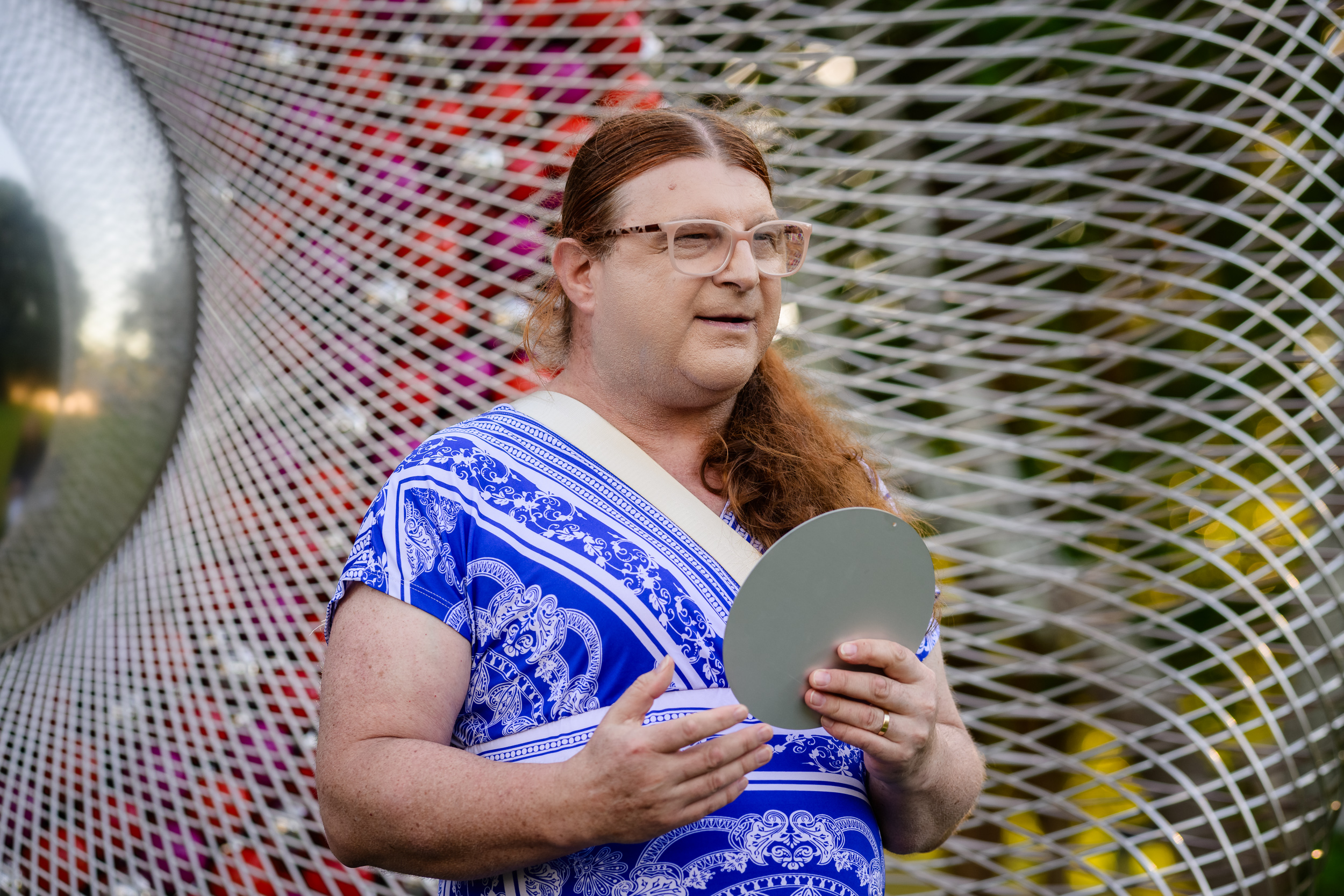Rogena Sterling
Profile
An interdisciplinary scholar and human rights activist, Dr Rogena Sterling was the first open, intersex person to receive a PhD in Aotearoa New Zealand. Their research focuses on human rights, indigenous data sovereignty, identity and wellbeing, intersex issues, and the decolonising of sex/gender. Rogena frequently speaks on these topics at conferences and in the media, and their writing has been published in numerous books and journals.
Rogena is currently a kairangahau (research officer) at Te Kotahi Research Institute, University of Waikato. They are also Co-Chairperson of Intersex Trust Aotearoa New Zealand, a Board member of Winston Churchill Memorial Trust and have previously served on various government human rights and intersex advisory panels and bodies.

Insight
The word gender is complex and loaded. For intersectional feminists, gender sits at the core of the fight for equality. It can enable us to take agency over our identity and our gender and sexual self-expression. But Rogena’s words caution us. Forgetting the historical establishment of gender and universalising it on all communities and people becomes a tool of oppression, especially for intersex people who are reminded painfully, for whom the concept was established, as it is written physically and psychologically on their bodies and identities.
The establishment of gender, enabled the stabilisation of the binary, a belief that only male and female sexes exist historically. Intersex people have been made invisible through sex assignment, assigning a ‘gender identity’ at birth, and traumatising ‘sex normalising’ surgery and/or medical treatment of intersex children. It denies diversity of sex identity, especially the existence of intersexuality and intersex people.
“Sex is a diverse continuum, from male to female, with no clear lines between them.” Rogena says. “It is time we left behind this fiction of two sexes, to allow freedom for us all. Intersex variations are normal, they demonstrate the diversity of sex. These variations should not be made invisible but celebrated.”
Te Reo Glossary
Te Reo Glossary
ākonga
student, pupil
alofa
love, affection (Cook Islands Māori language)
Aotearoa
New Zealand
aroha
love, affection
haere rā
goodbye, farewell
hapū
subtribe, part of a kinship group
ira tangata
term used for intersex in a Māori context
irawhiti
term used for transgender in a Māori context
Itāria
Italy
iwi
extended kinship group descended from a common ancestor and associated with a distinct territory in Aotearoa
kairangahau
researcher
kaitiaki
guardian
kaitiakitanga
guardianship, stewardship
kia kaha ngā wāhine toa
be strong woman warriors
kia ora
hello, greetings
kia orana
hello, greetings (Cook Islands Māori language)
kōrero
conversation, discussion
kuia
female elder
mahi
work
māmā
mother, mum
mana
status, prestige, authority,
Māngere
a major suburb in South Auckland, New Zealand
Māori
Indigenous people of Aotearoa New Zealand
mauri
life force, life principle
moana
ocean, sea
Ōtautahi
Christchurch, city in South Island, New Zealand
Ōtepoti
Dunedin, city in South Island, New Zealand
pākeha
New Zealander of European/foreign descent
peka
branch (of a tree, river, organisation)
Pōneke
Wellington, Capital of New Zealand
rangatahi
youth, young people
takatāpui
queer, gay, rainbow community
Tāmaki Makaurau
Auckland, city in North Island, New Zealand
tapu
sacred, prohibited
tautoko
to support, advocate
Te Kāhui Tika Tangata
Human Rights Commission, New Zealand
Te Kaunihera Wahine o Aotearoa
National Council of Women of New Zealand
Te Kotahitanga
Autonomous Māori Parliament from 1892 to 1902
Te Moana-Nui-ā-Kiwa
the Pacific Ocean
te reo
the Māori language
Te Ropu Wahine Maori Toko i te Ora
Māori Women’s Welfare League
Te Wāhi Wāhine o Tāmaki Makaurau
Auckland Women’s Centre
tikanga
protocol, correct procedure
wāhine
woman, women
wāhine kaha
strong woman/women
waiata
song, chant
waiata taitoko
song of support usually sung after a speech
wairua
spirit, soul
whakapapa
genealogy, lineage
whānau
family, extended family group
whare
house, building